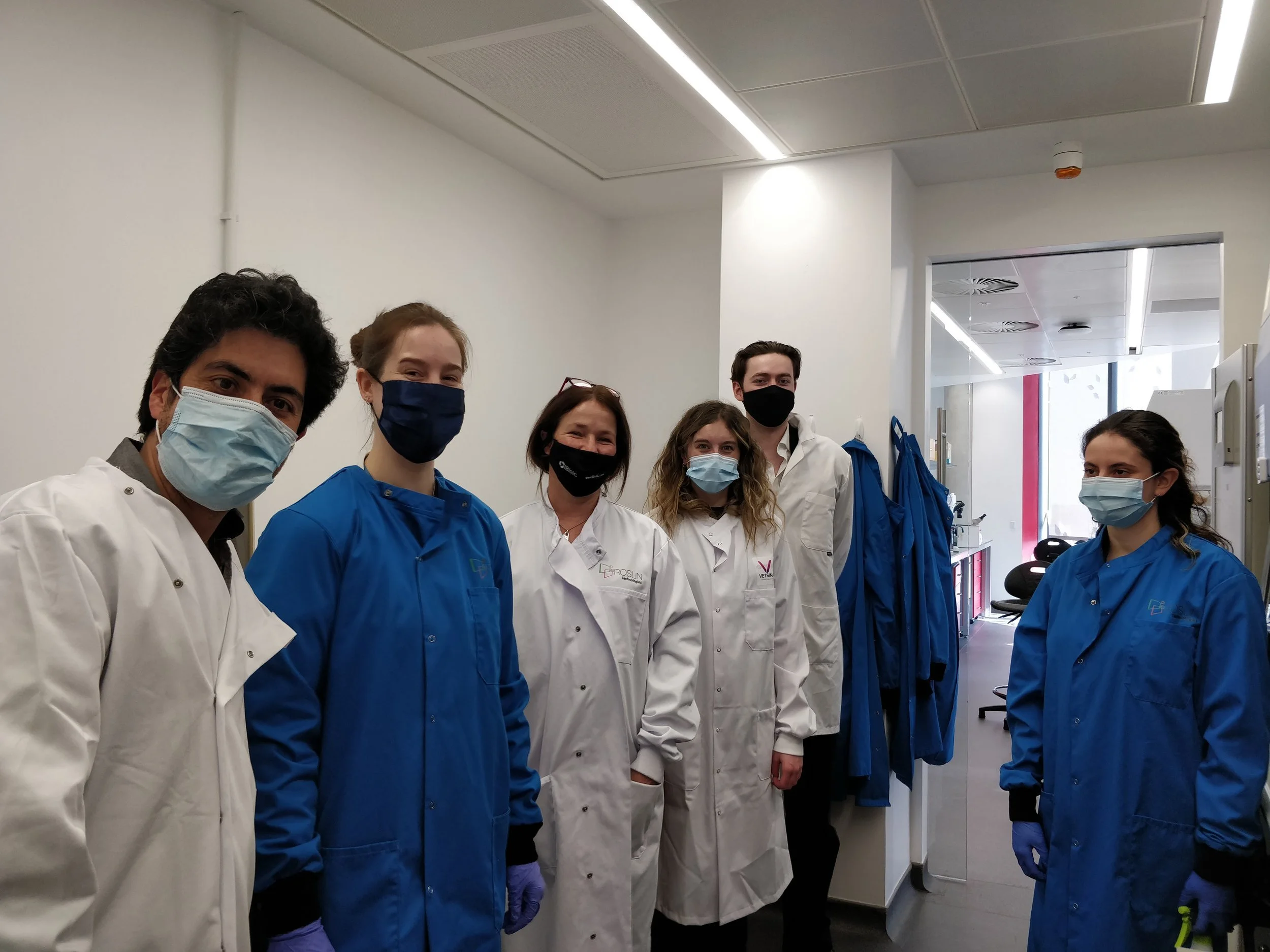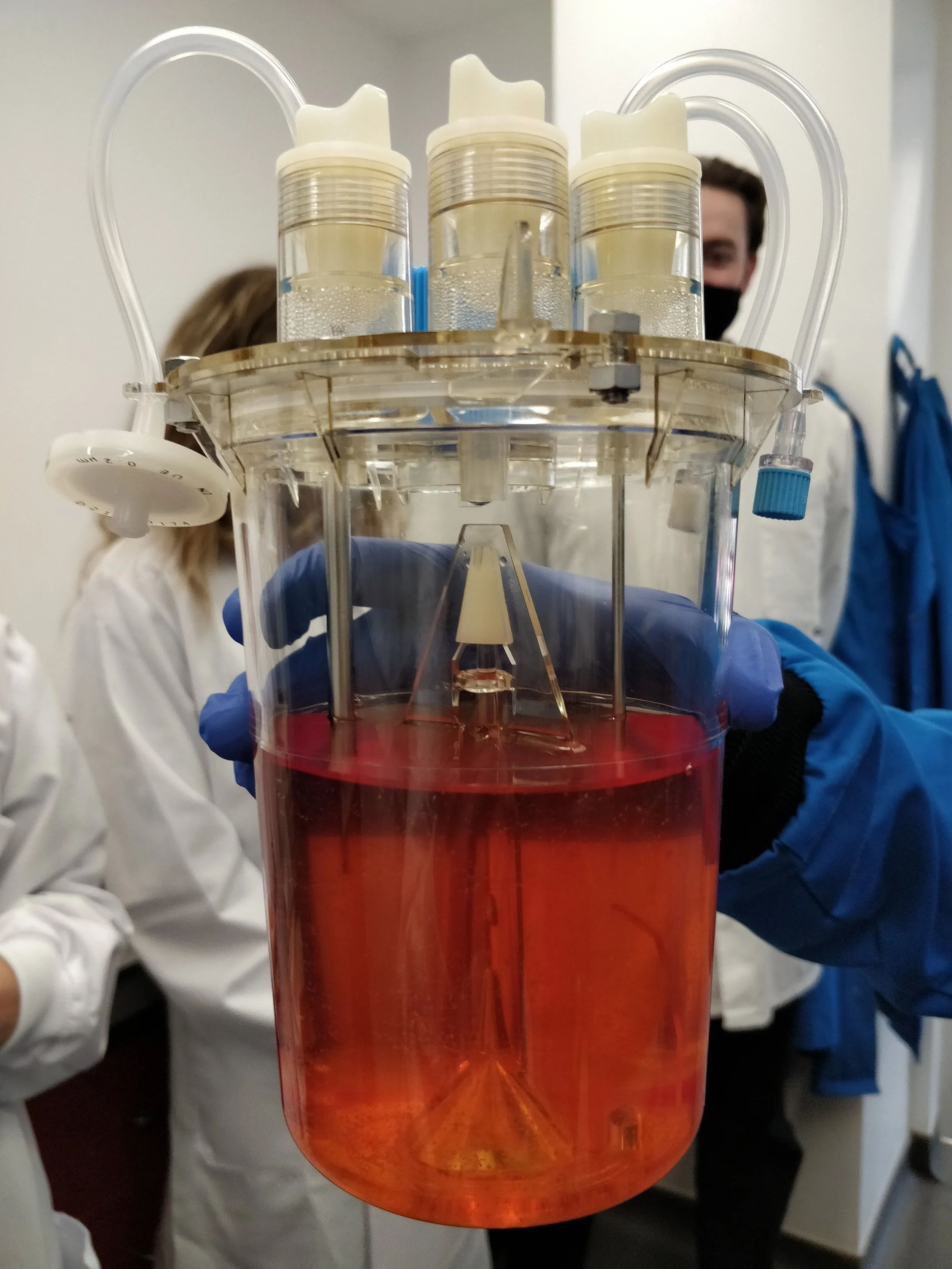Partnering for the commercial scale-up and development of novel cultivated meat products
Cultured meat is promising to revolutionise the food industry as a result of recent advances in cell culture engineering. Overall, the alternative protein market is worth ~$2.2B/annum, with strong 10-year growth potential (Bashi,McKinsey & Co, 2019). Since the first production of cultured meat (MosaMeats-2013), there has been considerable investment in the sector (>$500M).
There is, however, a critical bottleneck in cost effective scale-up to bring end products to market at an appropriate price point. This project looked at methods to reduce the cost of production at scale.
Challenge
Previous studies indicate that large scale production is challenging due to high media costs, low cell growth and batch-to-batch variation. To tackle this challenge, the team combined their latest developments in animal stem cell biology with new bioprocess intensification methodologies to radically boost production, whilst reducing reactor size and eliminating batch-to-batch variation. The technologies and know-how generated here will be key to further close the scale-up gap currently hindering the cost-effective production of cultured meats. The potential business opportunity for cultured meat production is considerable and this project’s outputs, by informing cost-effective scale-up design, will help Roslin Technologies (RTL) capitalize further on its unique offering to exploit this growing market opportunity in Cellular Agriculture.
Solution
IBioIC awarded Roslin Technologies Limited and University of Edinburgh £73,740.00 from our Innovation Fund to work on the development of a bespoke culture media that can reduce costs and improve growth of Roslin Technologies’ induced pluripotent stem cells (iPSCs). The team used the Beacon Optofluidic System at University of Edinburgh to select the best clones and optimise growth conditions in two scales of reactors (500ml and 5L).
Outcome
The outcome of this project was a 61% cost reduction in media. This was a highly collaborative project where Roslin Technologies Limited and University of Edinburgh staff worked side by side on all aspects of the project.
The company benefitted from cost reductions in their media and a new potential revenue stream of refined media for stem cells. In addition, culture scale-up bioprocesses developed to generate high cell densities for cultivated meat development will further support the exploitation of Roslin Tech’s cell lines at industrial scale.
The collaboration also allowed University of Edinburgh to demonstrate the benefit of their Beacon Optofluidic System which helped the company select the best performing cells for future development. There have been various dissemination activities with post-Doctoral scientists from Roslin Tech and the University presenting their research at industry and academic conferences.





